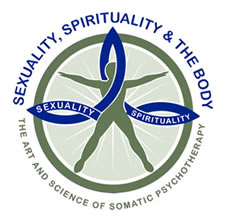Attention USABP Conference and EABP Congress Presenters
It’s conference time. Well, okay it’s still almost a year away, but it is time to generate interest in pre-conference workshops, keynote speakers, pull-out sessions, and of course the grand extravaganza (who doesn’t love dinner and dancing?). As our tradition, Somatic Psychotherapy Today will focus its Winter 2016 issue on the upcoming USABP Conference, July 21-23 in Providence, Rhode Island, and the EABP Congress, October 13-16 in Athens, Greece.
Register now for APPPAH’s 20th International Congress
We are pleased to share information regarding APPPAH;s 20th International Congress in the beautiful city of San Diego, California, November 30-December 3, 2017!
Along with a wonderful line-up of impressive Key Note Speakers and Breakout Speakers, they have now announced their selection of Pre and Post Congress Workshops. These will be taking place on Thursday, November 30 before the Congress and on Sunday, December 3, following the Congress.
You can register for your Pre-Congress Workshop and Post-Congress Workshop by clicking on the each of the links listed below. The Birth Psychology Congress website also has more detailed information on all of the presentations, who the presenters are and what you can expect to learn during the workshop. The full day (8 hour CE credits) Pre-Congress Workshop is $100, and the half day (4 hour CE credits) Post-Congress Workshop is $50.
If you have any questions you can reach out to us by emailing: [email protected]
International Body Psychotherapy Journal
You are invited to read our review of the 15th European Congress of Body Psychotherapy published in the International Body Psychotherapy Journal.
International Body Psychotherapy Journal
You are invited to read your review of the USABP's 2016 conference on Sexuality, Spirituality and the Body, as published in the International Body Psychotherapy Journal
Welcome to the APPPAH 20th International Congress!
APPPAH has announced their 20th International Congress! Their Congress Chair, Co-Chair, and Committee are looking forward to hosting this special event at the beautiful Town and Country Resort and Convention Center in sunny San Diego, California. They are beyond ecstatic to have all of us join them!
APPPAH Offers Free Articles
APPPAH is offering free articles on their website relating to life before birth, prenatal music and sound, the birth experience, birth and violence, prenatal parenting and primal health and womb ecology. They offer a treasure trove of pertinent essays from leaders in the prenatal and perinatal psychology and health field.
Free Webinar Tomorrow Night
The Alzheimer's Research and Prevention Foundation is offering a F*R*E*E* webinar this Wednesday, June 7, 2017 at 6 pm PDT/9pm EDT. Join Dr. Chris Walling, ARPF Chair of the Education Advisory Committee, and Kirti Khalsa, ARPF CEO, as they take your questions and share the vision behind the new course they are offering October 19-22, 2017---- the new Brain Longevity® Therapy Training, which will take place on the UCLA campus in Los Angeles, California.
Human Baby, Human Being: Contributions from the Emerging Field of Pre and Perinatal Psychology
Matthew Appleton is pleased to announce an upcoming conference Bristol, UK. This keynote conference will bring together innovative pioneers who have changed our understanding of the importance of how our womb and birth experience impact us as human beings. Many of the presenters are highly respected authors, lecturers and workshop leaders in the emerging field of prenatal and perinatal psychology.
It’s Here! Online Now!
The International Body Psychotherapy Journal announces the publication of its Lisbon Congress Supplement. Articles from keynotes speakers are offered to add insight into and generate conversation about body psychotherapy.
Join us at the 16th European Congress for Body Psychotherapy
Imagine spending time this Fall in Berlin, Germany. September 6 to 9, 2018, our colleagues worldwide will gather to explore 'Body Psychotherapy and Challenges...













